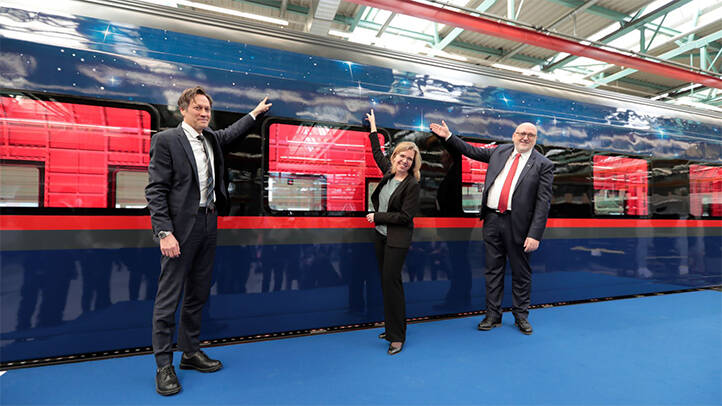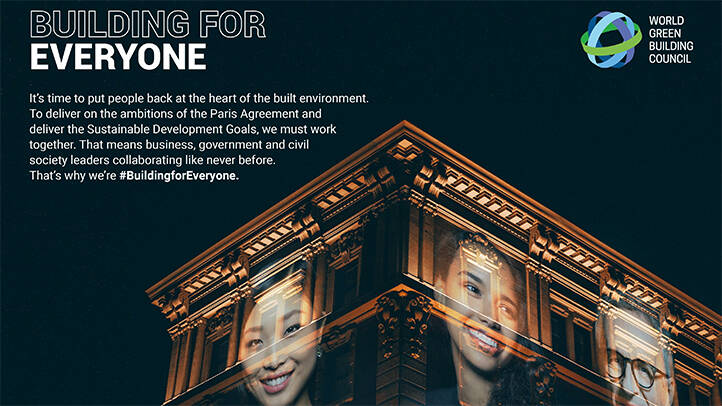Register for free and continue reading
Join our growing army of changemakers and get unlimited access to our premium content

Each of these success stories exemplifies how businesses are ramping up ambitions and actions in all areas of sustainable development
Published every week, this series charts how businesses and sustainability professionals are working to achieve their ‘Mission Possible’ across the campaign’s five key pillars – energy, resources, infrastructure, mobility and leadership.
Across the UK and the world, leading businesses, cities, states and regions are turning environmental ambitions into action. Here, we round up five positive sustainability stories from this week.
ENERGY: Investors secured for major new wind farm in Romania
Romania has set a target for renewables to account for 30.7% of its total power capacity mix by 2030 and may well increase that target ahead of COP27, as it revises its national energy and climate plan. It is already aiming to install a total of 950MW of additional renewable energy capacity by 2024, against a 2019 baseline.
In a positive step towards these goals, two firms – Low Carbon and Rezolv Energy – have agreed to terms to develop a 450MW onshore wind farm to the east of Bucharest. Low Carbon is taking a 49% stake in the Vis Viva wind farm and Rezolv Energy is taking the remaining 51%.
The €1bn project will consist of up to 120 turbines and was originally proposed in 2017. It has already gained approval from Romania’s Ministry of Energy.
“Rising energy costs, heightened security concerns, demand to meet climate targets, and stakeholder expectations, are causing a rethink on energy usage – and production,” said Rezolv Energy’s chief executive Jim Campion. “Today, private companies, as well as public utilities, are finding their traditional reliance on fossil fuels far less viable. The Vis Viva project will play a major role in accelerating this transition in Romania, whilst providing long-term, stably priced electricity to commercial and industrial consumers across the region.”
RESOURCES: Allbirds debuts trainers made using plant-based leather
Increasing awareness of animal rights, human rights and environmental issues arising from the leather supply chain has led to a boom in demand for alternatives in recent years – no doubt also spurred by fast fashion retailers’ desire to produce cheaper footwear and accessories for customers on a budget. The issue with this is that most leather alternatives are pleather – plastic-based materials which are made using fossil fuels and are notoriously hard to recycle.
Showcasing a different approach this week is B-Corp-certified shoe brand Allbirds. On Tuesday (13 September), the brand unveiled a new ‘Plant Pacer’ shoe using no pleather and no leather. The shoe’s upper is made using ‘MIRUM’, a material made using upcycled plant materials and materials from plants classed as renewable due to their abundance. MIRUM was created by NFW and this is the first time it has been commercially used on footwear. NFW claims that the material has a carbon footprint 88% lower than cow leather and 75% lower than the typical pleather.
The other shoe components are made using certified rubber, Lyocell fabric and sugarcane-based foam.
Allbirds’ co-founder and co-chief executive Tim Brown said: “For way too long, fashion companies have relied on dirty synthetics and unsustainable leather, putting established ways of doing things and costs before the environment. We wanted to put an end to that, which led us to create the Plant Pacer.
“Through the innovative use of natural materials, like Plant Leather and others, we’re going to continue stretching the limits of sustainable footwear.”
MOBILITY: Plans revealed for Europe’s next generation of sleeper trains
Image: Siemens
Earlier this year, the edie team featured a new sleeper train from Stockholm to Hamburg in the weekly success stories roundup. While train trips take longer than plane trips, they’re a lower-carbon alternative and are becoming increasingly popular on climate grounds.
Now, Austria’s national railway, ÖBB, has provided the first look at the interior of its new generation of sleeper trains, at an event in Vienna. The ‘NightJet’ trains will serve routes connecting Vienna, Budapest, Berlin, Milan, Rome and Zurich.
The first of the 33 new trains will be launched next summer and a full roll-out should be completed by the end of 2025. Each train can carry 254 passengers.
THE BUILT ENVIRONMENT: Industry marks World Green Building Week
For the past 14 years, the World Green Building Council (WGBC) has hosted a week-long event in Septemberaimed at accelerating the uptake of solutions for a more s ustainable built environment across the globe. More than 70 national Green Building Councils, collectively representing more than 36,000 members, took place in this year’s edition from 12 to 16 September.
One of the taglines for this year was Building To COP, with the sector aiming to ensure that policymakers preparing for November’s conference in Egypt are aware of the role that buildings and infrastructure must play in the net-zero transition and the wider achievement of sustainable development. Buildings and construction account for almost 40% of global annual emissions and one-third of global energy use.
The theme for this year was Building for Everyone, highlighting the importance of creating buildings and infrastructure which is accessible and creates thriving local economies and communities – not just projects that are low-carbon.
The WGBC’s chief executive Christina Gamboa said: “As we build on the successes of Cities, Regions and Built Environment Day at COP26 in 2021 and continue to advocate for climate action towards COP27, leaders must leverage the untapped opportunities of the built environment to decarbonise our economies and provide social economic benefits for those who need it the most.”
BUSINESS LEADERSHIP: Patagonia announces new ownership structure that will enable all profits to go to sustainable causes

Pictured: Patagonia’s founder and former owner, Yvon Chouinard. Image: Campbell Brewer
In a bold move which you’ll probably have seen news of in your LinkedIn feed this week, cult outdoor clothing and kit brand Patagonia has announced that none of its profits will be used to add wealth for shareholders of its family owners going forward. Instead, the profits will be re-invested in the business or given to sustainability-related projects working on issues such as nature conservation and restoration.
The US-based brand’s founder Yvon Chouinard announced on Wednesday (14 September) the creation of two new entities to hold Patagonia’s stock. A new Purpose Trust will hold all of the voting stock. A new Holdfast Collective will hold all of the voting stock, and will funnel profits into social and environmental profits.
Patagonia has been donating at least 1% of its profits to such initiatives since 2002 and has encouraged thousands of other firms to do the same. In going further, Chouinard said the firm was “going purpose” rather than going public, and will, in essence, have the Earth as its only shareholder.
Read the full story on edie here.






Please login or Register to leave a comment.